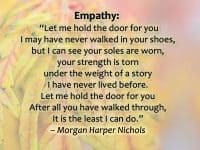Tina Hallis's Blog, page 14
December 6, 2020
Is Social Media Using Us Like Puppets?

Lots of friends have recommended the documentary, The Social Dilemma, so I knew it would be interesting. And it certainly was! The film discusses how social media has turned into a tool that uses each of us in ways we don’t even realize. It distracts us. It manipulates us. It watches us. It divides us. It controls us. And the list goes on. It’s like we’re puppets in a show.
One of the topics that disturbed me the most was the fact that the news and posts in our feeds are chosen to validate our current beliefs. Algorithms monitor what we search for and what we read. So instead of giving us accurate information from a broad perspective, it selectively chooses pieces that make us feel right. AND we think that everyone else is seeing the same information so how could they NOT agree with us? They must be ignorant, stupid, or bad people!!
No wonder there is so much polarization and distrust in our society, our workplaces, and even in our families! We think our opinions, beliefs, and decisions are based on facts, but we’re only seeing a few hand-picked pieces of “data.” And these pieces are likely different than what our friend, neighbor, or coworker are seeing.
What can we do? Here is a four-step approach to try:
Be aware of the intentional bias in the search results, the posts, and the news you are being fed via social media.
Try to keep an open mind when other people have different opinions and beliefs instead of letting the social media moguls influence you.
Use curiosity and compassion to learn more about why other people believe what they believe. Calmly and kindly ask them to tell you more.
Offer up pieces of data from both sides and suggest that our opinions are influenced by the information we see.
The goal of The Social Dilemma is to change how technology is designed, regulated, and used so we can better manage the negative impact of social media while encouraging its benefits. But in the meantime, we can improve our happiness and our relationships by being a catalyst for curiosity and not a puppet.
November 29, 2020
Uncertainty Is Like Floundering in a Fog – Ideas to Help You Find Your Way

Uncertainty seems to be the only thing that’s certain these days. It’s like we’re in a fog and can’t see where we’re going. Some believe the promise of vaccines will get us back to some kind of “normal” soon, but it could be months and it definitely won’t happen in time for the holidays. So we continue to try to adapt. To celebrate virtually. To find some sense of control.
As you’ve heard me mention before, our brains hate uncertainty! It skyrockets our stress, our hopelessness, and our frustration. But there are still things we can control. And when we focus on these, we can find more peace. Here are some areas we can use to gain more feelings of autonomy, AND they will also improve our health and wellbeing!
Nutrition – Making healthy choices for what we eat such as cutting back or eliminating sugar, white flour, adding more non-starchy vegetables, berries, seeds, nuts, fish, etc.
Activity – Staying active and moving to keep our blood pumping every day in ways that work for us
Sleep – Finding and using the sleep pattern that works best for us
Social Networks – Building connection by spending time (in-person or virtually) with people we care about and who care about us, that support and encourage us and help us be our best
Thoughts – Choosing thoughts that help us cultivate positive emotions such as hope, gratitude, optimism, curiosity, calm and not getting stuck in negative emotions
Meaning and purpose – Making sure that our lives contain a reason to get up in the morning, big or small
Achievement – Learning and growing by getting outside our comfort zone to build our self-confidence and self-credibility
Which of these suggestions catch your attention and sound interesting? Is it time to change your diet? To change some habits? To reflect on your interests and passions? To learn something new? Take one baby-step to gain more control in your life and see how it feels.
November 21, 2020
Do You Believe What You Think?

Our brains are a lot like our lungs. Our lungs breathe without us telling them to, and our brains think without us telling them to. And just like we can influence our breathing by paying attention, we can influence our thinking by paying attention.
I remember the first time I heard this analogy and how much I LOVED it! It’s so true!! If we remember that our brains are always producing thoughts, it’s easier to understand why it’s so important to tune in and see what we’re telling ourselves.
Chances are that most of our self-talk is not very nice and not very helpful. As you know, our survival instinct is always “on” and always encouraging us to assume the worst, just in case. So paying attention to that inner voice is key to shifting it to more positive self-talk.
This is one of the most important keys to increasing our happiness and decreasing our stress because we tend to listen to and believe our inner voice. No wonder it has a huge impact on the way we see ourselves and the world around us!
Watch what you tell yourself, you’re likely to believe it. – Russ Kyle
Of course, changing that inner voice is easier said than done. That’s why I was so excited to find this valuable article by Elaine Mead, BSc. It’s full of insights, ideas, and activities to help us shift.
For example, here are five of the ten examples of positive self-talk Elaine shares in her article:
I have the power to change my mind.
Attempting to do this took courage, and I am proud of myself for trying.
Even though it wasn’t the outcome I hoped for, I learned a lot about myself.
I might still have a way to go, but I am proud of how far I have already come.
I am capable and strong; I can get through this.
This week, pay attention to your inner-voice. If it’s negative, try using one of the positive examples from above to shift your thoughts.
November 15, 2020
Don’t Get Stuck in a Rocking Chair – Focus on Emotional Balance

Our lives have been overflowing with challenges this year. On top of our own personal difficulties with health, finances, isolation, overwhelm, work, etc., we are also immersed in all the terrible things happening in the news. It’s easy and normal to spend a lot of time feeling stressed, worried, or frustrated. But if we get stuck in these negative thoughts and emotions, it comes at a cost – a cost to our well-being, our quality of life, and even our health.
My message is NOT about ignoring these problems or avoiding the feelings they bring. That’s not helpful or healthy either. Our frustration and stress can be great motivators for us to take action to make things better, to fix problems, and to right wrongs. The trick is to recognize when we can channel this negative energy into making a difference vs. when we’re simply wasting our energy and our life on things we can’t control.
Instead, my goal is to help people find a better, healthier, more enjoyable balance. It’s about using our negative emotions, getting the information they’re trying to tell us, and then moving on without getting stuck.
It can be helpful to –
Tune in and notice your thoughts and emotions
Write them down and get clear on what they are
Decide what is in your control and what isn’t
Recognize and let go of those things you can’t control
Consider how to channel negative emotions into productive action
Worrying is like sitting in a rocking chair; It gives you something to do but it doesn’t get you anywhere. – English Proverb
Try tuning in and experimenting with the bulleted points above to help you achieve a better balance of your emotional energy for a higher quality of life. Don’t waste your days stuck in a rocking chair!
November 8, 2020
What’s Your Quality of Life?

What do you think of when you hear the words, “quality of life?” Do you think of people’s health and ability to function as they age? I’ve heard some say that they don’t want to spend the last few months (or even years) of their life being an invalid; that there’s no quality of life. Or maybe you think of people who are seriously ill and are constantly in pain and suffering.
I started thinking about this phrase because my dad and I were talking about a friend of his who just passed away. He had been in hospice for several months with Alzheimer’s and other health issues. My dad sadly recalled how his friend had had very little quality of life in the past year.
It occurred to me that we could also think of our quality of life right now, in this moment. Would you give it a high rating? If not, what could you change?
Do you need to take more time to have fun and enjoy your life?
Do you need to spend more time appreciating what you have instead of focusing on what you don’t have?
Do you need to spend less time worrying about things you can’t control?
Do you need to cut back on those things that detract from your quality of life? (Think news, social media, and negative people)
Do you need to accept others for who they are, instead of wanting to change them?
It may not feel like we have much control over our health, but right now we have more power over our quality of life than we realize! Don’t let your days (and years) slip away in survival mode. Take action on one of the questions above or on another aspect of your life you need to change.
November 1, 2020
Finding Happiness During Uncertain Times

One of my biggest “ah-ha” moments, as I was studying Positive Psychology, was understanding how our brains react to uncertainty. I was intrigued to learn that uncertainty triggers a strong threat response as part of our survival instinct. This happens in the primitive part of our brain that’s all about keeping us safe. It’s immediate and takes no effort on our part. Most of the time, we don’t even realize it’s happening.
This threat response goes something like this. “This winter is going to be horrible! No one knows what’s going to happen with the pandemic. It’s probably going to get worse and we’ll all have to go on a stricter “lock-down,” and I’ll be isolated. And the economy will get worse. And I won’t be able to pay my bills. And I won’t be able to find toilet paper again. And I’ll be depressed. And life will suck! It’s totally hopeless!!”
This is a normal internal dialogue because our survival instinct says, “If you’re going to stay safe, you have to assume that the worst is going to happen. If you expect the worst, then you might find a way to survive.”
If we don’t override this survival instinct, it will dominate our thoughts and keep us stressed and discouraged. But we all have the power to intercede. We CAN notice this negative thought pattern and take action to shift out of survival mode. We don’t have to let it control our minds and run our lives.
I recently had the privilege of sharing some of my favorite positivity strategies at The Monona Terrace Wellness Talks. And what’s great is they have publicly shared the recording so you can check it out here. I hope you can find time to watch this virtual program and see what some of the audience shared for their ideas to add more positivity to their days (via live polling).
“Sometimes it feels like life has buried us in the dirt; In reality, we’ve been planted with an opportunity to grow.”
October 24, 2020
If We Only Knew Other People’s Backstories = Empathy & Understanding

My new neighbor Tom (not his real name) appeared to have it all; a successful career, a beautiful house, a nice family. It would be easy to be envious of his life. That is until I learned more about his backstory. Once I got to know him better, I learned that he had had a very difficult childhood including neglect, emotional abuse, and a family member with an undiagnosed mental illness. Tom had come a long way after hitting rock bottom but still had days that were hard.
Mike (not his real name) was a fellow manager at the biotech company where I worked. We were in different departments but were on many of the same projects. Mike knew how to “push my buttons“ and it seemed like he always managed to challenge my ideas and say something that made me defensive. I dreaded our meetings together. Then I learned about his very ill child. Mike spent much of his “free” time taking care of his child and running them to doctor appointments.
Janet (not her real name) was a co-worker who I really enjoyed. She was always upbeat and had an infectious laugh. It seemed like she was always going on adventures and having fun. One day she shared how she struggled with depression and was having issues with her new medications. I was shocked! I would never have guessed that she was anything but happy.
There are several more examples I could share. Examples of people who have backstories; experiences and situations they’re dealing with that most people never know about.
I think of these people when I start believing that someone else’s life seems better than mine. I think of these people when I notice myself judging someone for their behavior. I think of these people to remind myself that I don’t know other people’s backstories, what traumas they’ve endured, what wounds and baggage they still carry, or what crisis they’re currently trying to handle.
Who are you judging? Who are you envying? Find more empathy and understanding by reminding yourself that you may not know their backstory.
Empathy:
“Let me hold the door for you
I may have never walked in your shoes,
but I can see your soles are worn,
your strength is torn
under the weight of a story
I have never lived before.
Let me hold the door for you
After all you have walked through,
It is the least I can do.”
– Morgan Harper Nichols
October 18, 2020
Are You Haunted By Your Inner Critic?

Do you ever feel like other people’s lives are better than yours? Maybe they have a fancier house or car. Maybe they seem to have the perfect family or the perfect career. Their life seems to match up more with the fun adventures and happy endings you see in movies, stories, and in your social media feeds.
Or maybe you’re like me and have discovered that many people who seem to have it all are just really good at hiding their problems and imperfect lives. They’ve learned how to appear confident, successful, and happy even though they’re struggling on the inside.
In his book, Positive Intelligence, Shirzad Chamine tells the story of how he asked 100 people at one of his retreats to anonymously share one secret about how they really felt on the inside. He collected the responses and randomly read them out loud to the group. He was met with shocked silence when he finished. The responses included comments like, I feel incompetent. I feel flawed. I’m afraid people will find out I’m pretending to be capable and confident. I feel unworthy.
His group was surprised (and relieved) to discover that they weren’t the only ones who felt haunted by their inner critic.
This story made a huge impact on me because these weren’t just any 100 people; they were CEOs and presidents of very successful companies. During his many years of coaching hundreds of CEOs, their executive teams, and their families, Shirzad found 10 common themes of self-talk that hold people back from their best lives. Read more about these saboteurs and how to identify yours in my previous post.
I think it’s ironic how society pushes us to appear “perfect” to the outside world. But it’s not about being perfect – nobody likes a perfect person anyway. Instead, it’s about being vulnerable, showing our imperfections, and accepting them so we are relatable and approachable and happier.
“Imperfections are not inadequacies; they are reminders that we’re all in this together.” — Brené Brown
Granted, it’s not easy to go against the norms and expectations of trying to appear self-assured and accomplished.
“I now see how owning our story and loving ourselves through that process is the bravest thing that we will ever do.” — Brené Brown
Look for opportunities to catch yourself comparing yourself to others, of feeling like you need to pretend to have it all together and try a little vulnerability.
October 11, 2020
Plan Ahead to Avoid the Winter Blues

Right now, the leaves are at their peak color in the Baraboo Bluffs by my house. As I’m soaking in the beauty, I’m also haunted by what comes next. WINTER!! I’ll be honest. The cold weather, gray skies, and short days can make me feel lethargic, unmotivated, and overall just cruddy. AND this winter has so much uncertainty with it because of COVID. Yikes!
Do you ever suffer from the “winter blues?”
Last year was a little easier for me. I was immersed in finishing my online course, Keep Your Positive Edge – How to Build Your Immunity to People’s Negativity. It was something I was passionate about and it gave me an interesting reason to get up in the morning. So I’m trying to plan ahead for ways I can make this winter a little better, too.
Here’s a list of ideas that might help.
Plan a project that appeals to your interests. My daughter enjoys art so she’s going to paint a mural on one of the walls in her bedroom. It may be a bit messy and she may want to paint over it at some point, but the hassle is worth it if it makes winter a little easier.
Research about a new topic that fascinates you. Since my diagnosis with type 2 diabetes a couple of years ago, I’ve become passionate about learning the latest science on nutrition and disease. I’m planning on sharing some of the shocking discoveries as part of my business so I’m excited to keep digging.
Tackle a goal that would make you feel good. Do you want to eat healthier, exercise more, organize your closets or cupboards, get more sleep, etc? Getting in touch with the reason you want to make a change can provide the motivation you need to succeed.
Keep your social calendar full. Maybe you can’t see all your friends and family in-person, but you can intentionally schedule a call or video chat with someone every week (or more). Investing in your social network is so important for your physical, emotional, and mental health!
Keep your positivity battery charged. We’re all different so you have to find what works for you. Here’s a list with some easy and simple ideas to try.
Start planning now. It’s much easier to pick an idea before you’re feeling blue.
October 4, 2020
Is It a Problem or an Inconvenience? Try a Shift in Perspective

I was so frustrated and mad! My daughter and husband were very upset, too. Why had I decided to change internet providers?? After six days and at least five hours on the phone with technical support (and managers), we STILL don’t have any WiFi in our home!! AND they were saying if we wanted to cancel, we would have to pay hundreds of dollars in penalties. Yikes!!
My husband and I both work from home, so our internet access is key to our businesses. Plus, my daughter sometimes uses the internet for school (besides TikTok, YouTube, etc….). I was trying to be patient, but my frustration was surging.
In the middle of this debacle, I was scheduled to give a virtual talk on “Sharpening Your Positive Edge” for a local company. I was grateful that my local yoga studio was willing to rent out their space so I could use their stable and strong internet for my virtual programs! As I reviewed my slides, it hit me. My WiFi issues were not a problem; they were an inconvenience.
I remembered the people who have lost their homes or are evacuated because of the fires out west or the damage from the hurricanes. I was thinking of families I know who are heartbroken over the recent loss of a loved one taken too soon. And then there are families I know who are currently trying to manage gut-wrenching situations because of severe illnesses.
In an instant, my perspective expanded and my mood shifted from one of stress and anger to one of gratitude and humility. My internet “problem” seemed very minor compared to other people’s situations. It took a dose of my own medicine to adjust my attitude.
How could a shift in perspective help you and your stress? What would help you see your challenges in a different light?



